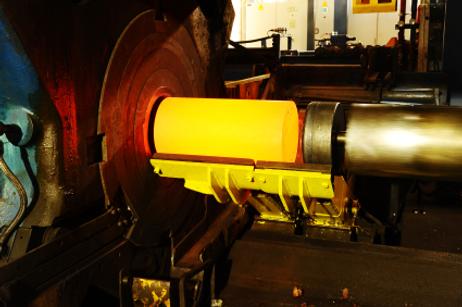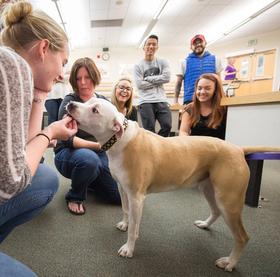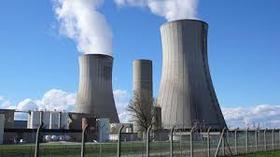Metal is a material that has been used for the construction of many of our buildings and much of our infrastructure today. As this substance corrodes over time, it creates serious safety, environmental and financial concerns across the globe. The industry of corrosion technology is a relatively new field committed to preserving construction projects of all kinds with corrosion prevention and repair. Now community colleges are coming onboard this exciting new field to train up a new generation of workers committed to preserving the hard work of generations past.
Seward County Community College
What is a Corrosion Technician?
According to the Kilgore College website, corrosion technicians work in both indoor and outdoor settings, installing, maintaining and inspecting properties of all kinds. Structures of concern for corrosion technicians might include massive underground pipelines, industrial equipment and storage tanks. The technician might also work in transportation, maintaining airplanes, boats and other vessels.
The corrosion technician must have a background in chemistry, metallurgy and electricity. These professionals may specialize in a particular area of corrosion technology, such as coating inspection or material selection, but others may work in a more generalized setting. According to a report at Pay Scale, the average salary for corrosion engineers ranges from just under $40,000 annually to more than $100,000, depending on the level of skill, training and experience. The field is a growing one, with an increasing demand for corrosion technicians as current infrastructure ages, and few workers trained and ready to fill the positions. Fortunately, more community colleges are offering corrosion technology programs in hopes of filling in the gaps.
This video from Seward County Community College explains what corrosion technology is.
Seward County Community College Launching Corrosion Technology Program
Seward County Community College/Area Technical School has kicked off a corrosion technology program this year, complete with a barbecue event to teach students about the importance of corrosion technology and the need for qualified workers in the field. According to the Southwest Daily Times, the Kansas school wants to get the word out about the importance of corrosion technology to recruit students into their new program.
“We’re really trying to push it, trying to get everything going,” Molly Woods, the Title V administrative assistant for the school told the Times. “We’re getting as many students as we can enrolled.”
Woods explains that the program is important on many different levels, since metal makes up a significant portion of many of the buildings and infrastructures today.
“Those things need to be protected,” Woods told the Times. “Our highways, infrastructure, subways, train systems, airplane systems; they’re all getting older and we need to be able to protect those things for our future use for safety reasons.”
Woods believes that corrosion technology is an up and coming industry that will offer plenty of career options. She explained, “As things age, as all of our infrastructure ages, we have more and more need to protect our structures, to maintain the safety of our structures. Employment will only grow as everything ages.”
Currently, the program at Seward has signed up 18 new students. These students will learn the ins and outs of corrosion technology, earning either a 10-month certificate or an associate degree. Instructor William Worley told the Times the Seward program will prepare students for a career in corrosion technology.
“They’ll be asked to master different skills – electricity, metallurgy, chemistry – and how all those disciplines fit together to help them understand the mechanisms of corrosion,” Worley said. “In their careers, they’ll either be asked to prevent the corrosion from happening in the first place or to mitigate it after it happens.”
Since few colleges are currently offering degree programs in corrosion technology, Seward did not have many models to draw from. According to Worley, the only other school in the country to offer this field of study right now is Kilgore College in Texas.
“It’s a very successful program,” Worley said. “We felt we could help the industry by starting another school here.”
This video offers a quick look at corrosion technology.
Corrosion Technology at Kilgore
According to the Kilgore website, corrosion costs the United States more than $300 billion each year, and results in significant safety, environmental and financial issues. Corrosion technology can alleviate some of the cost and problems associated with corrosion, through construction and installation techniques that reduce the risk of corrosion, and proper maintenance and repair procedures to keep corrosion in check. The website also explains that with new government regulations that have been implemented over the past decade, the need for specialists in this field is even greater than ever before.
The corrosion technology program at Kilgore can be completed in just two years, for students who do not require any remedial coursework coming into college. The program also includes a summer internship, offering students on-the-job training between the second and third semesters. The program includes courses in corrosion, metallurgy, ultrasonics, welding and technical drafting and writing. Those who graduate from the program will be eligible for careers in manufacturing, operating companies and government agencies.
Corrosion technology may be a relatively new field, but it is an important and growing one. The technicians that come out of these specialized training programs will be instrumental in keeping infrastructure, buildings and transportation safe and functioning around the country. As more community colleges tune into the opportunities waiting in the corrosion technology industry, it is likely that programs like the ones at Seward County Community College and Kilgore College will continue to crop up around the country. More programs will allow more students to get in on the ground floor of an up and coming field.
Questions? Contact us on Facebook. @communitycollegereview















